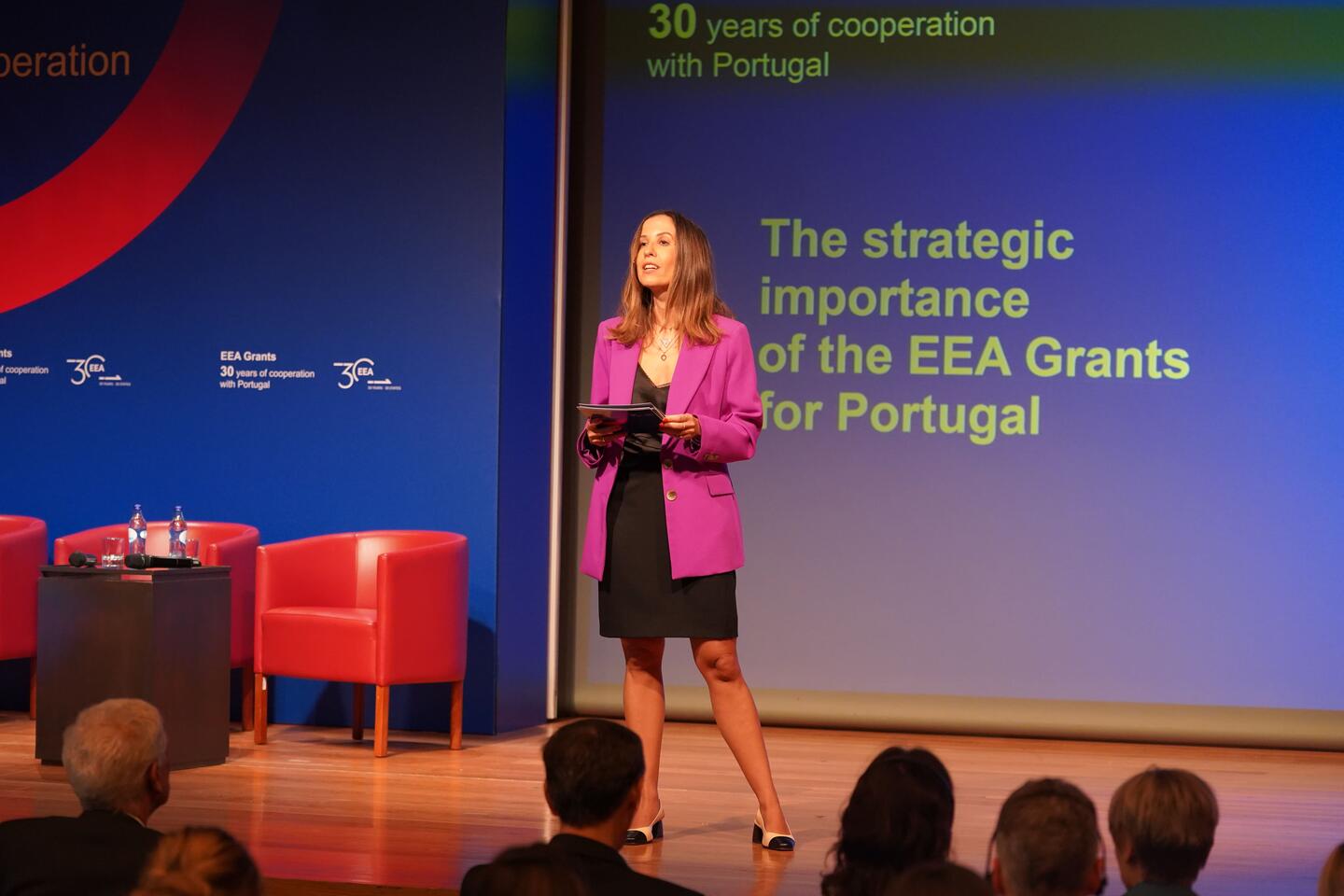The celebration was a moment to reflect on the achievements made possible by the EEA Grants and the ongoing cooperation between Portugal and the Donor States. “Today, we are celebrating the 30 years of the EEA Grants, 30 years of cooperation between Portugal, Norway, Iceland and Liechtenstein”, added Maria Mineiro, Head of the National Focal Point in Portugal.
The National Focal Point in Portugal, embedded within the Ministry of Planning, has played a crucial role in ensuring the successful implementation of the EEA Grants. Since 1994, the EEA Grants have focused on reducing social and economic disparities and strengthening cooperation across borders. “More than 30 years have passed since we initiated our cooperation within the framework of the EEA Grants, which saw its first days here in Portugal”, said Maria Varteressian, Norwegian State Secretary for Foreign Affairs.
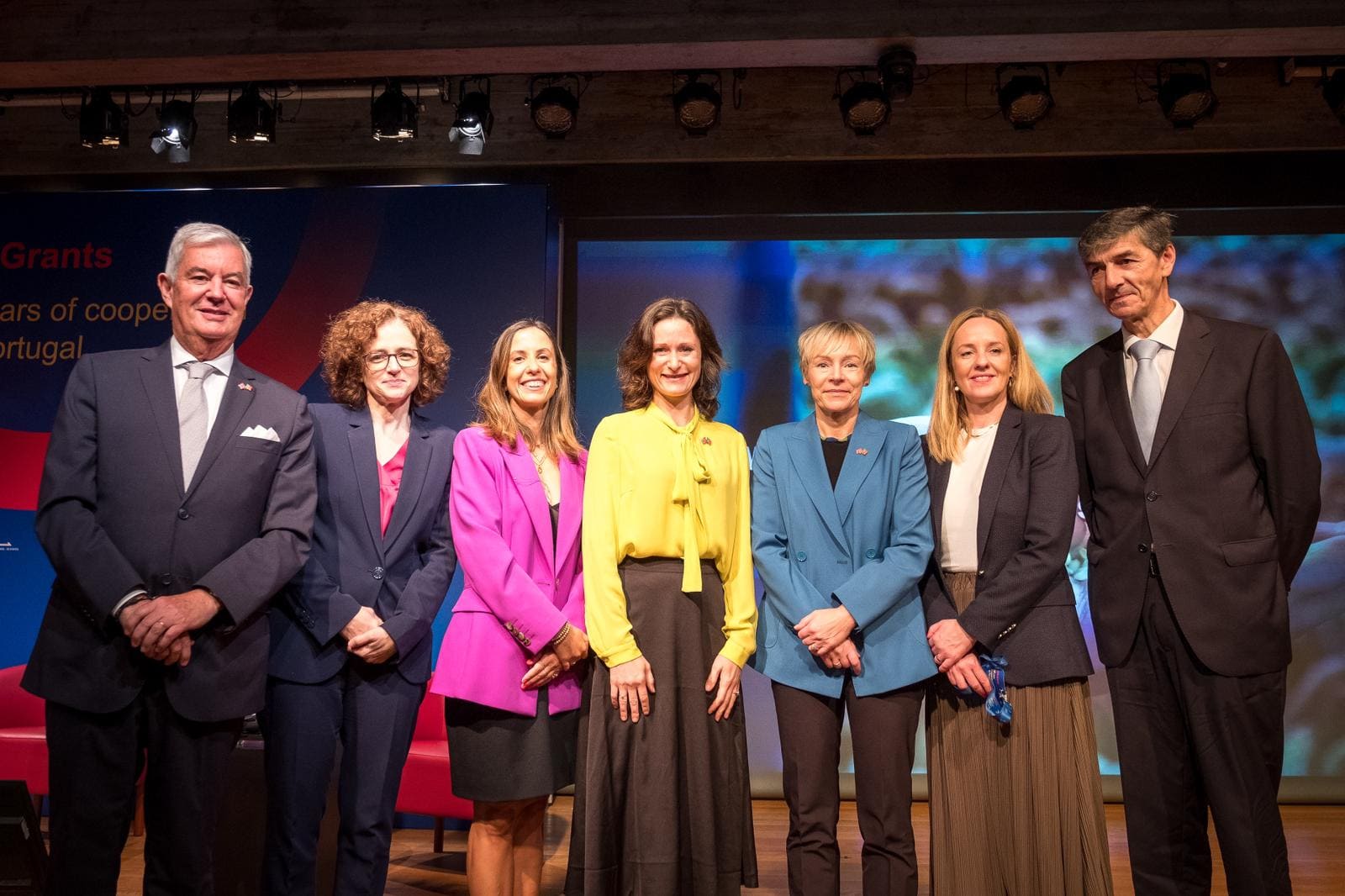
Photo credits: EEA Grants - Portugal
In the 2014-2021 funding period, over €102 million has been dedicated to programmes covering civil society, blue growth, the environment, gender equality, and innovation. These programmes uphold key values such as democracy, human rights, and social inclusion. “There are many examples of how we have grown even closer together as two nations that share a lot in common, and how we have worked together to strengthen key fundamental values of the European Union, which we have used to strengthen our countries and the competitiveness of Europe”, added the Norwegian State Secretary.
Results and achievements that have made a real difference
Over the last years, more than 295 projects have been completed in Portugal with the support of the EEA Grants. These projects have contributed to making
For the last 30 years, the contribution of the EEA Grants has made a big impact in Portugal. Continuing it is fundamental to ensure a greener, more inclusive, and more competitive Europe in the future. Maria Mineiro, Head of the National Focal Point – Portugal.
Portuguese society more inclusive, sustainable, and resilient. The Grants have had a transformative effect across multiple sectors, from blue growth and climate action to civil society and innovation.
“After three decades of cooperation there are many successful stories and projects to choose from”, emphasised Una Jóhannsdóttir, Deputy Chief of Mission from the Embassy of Iceland in Paris. “I want to highlight our cooperation on building a geothermal plant in Terceira, one of the Azores islands, which has helped the island in cutting their emissions.”, she added.
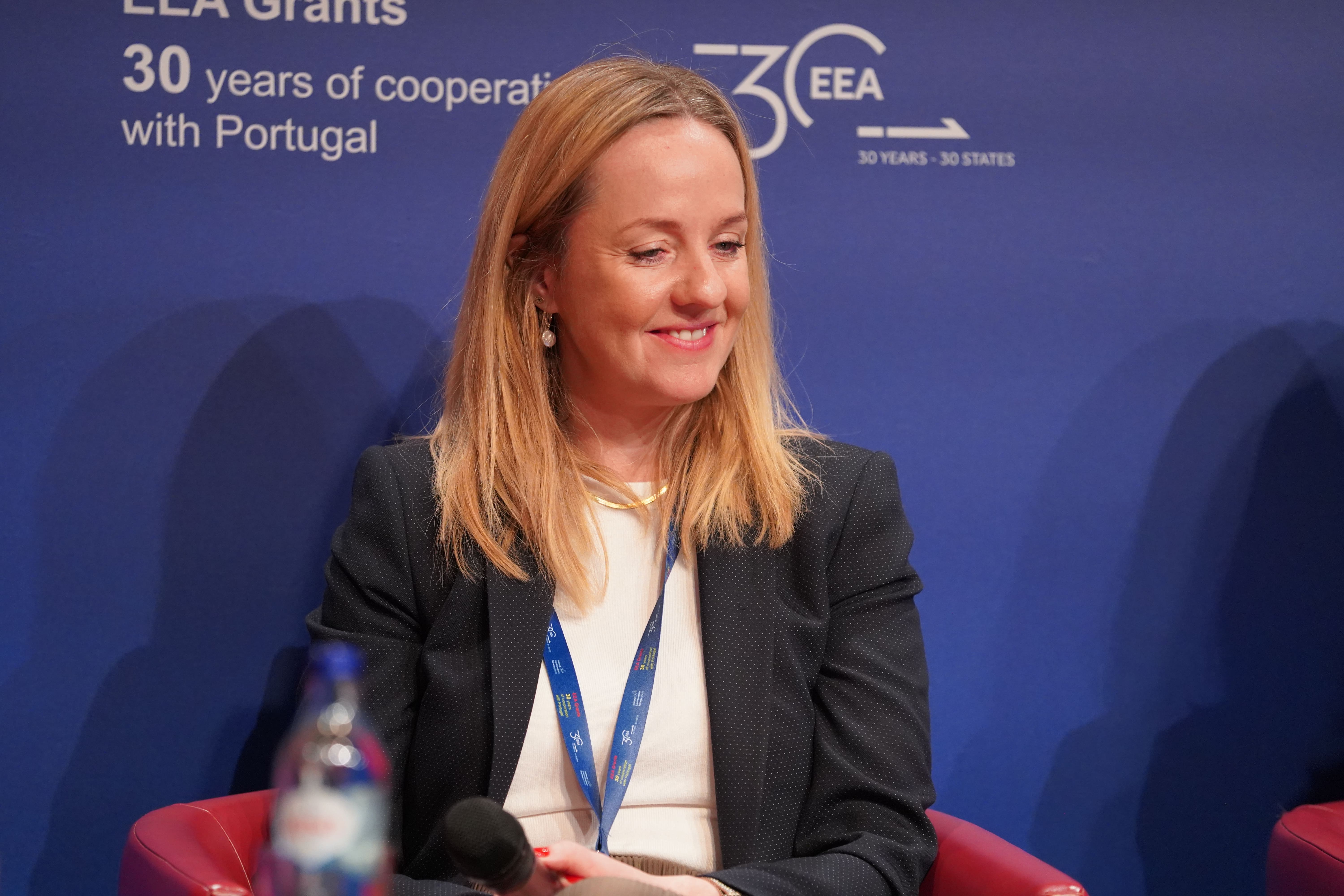
But the list of significant achievements in Portugal goes on and on. One of them is the Blue Growth, Innovation and SMEs programme, which has helped Portugal leverage its vast ocean resources to drive long-term sustainable growth in the maritime sector. A standout project, Peladrone, in collaboration with Norwegian partners, used drone technology to map and collect ocean litter, addressing a major environmental issue while boosting the competitiveness of Portuguese SMEs.
The EEA Grants have also been key in supporting Portugal’s climate adaptation efforts. Through local climate adaptation plans and circular economy initiatives, the grants have helped municipalities prepare for climate-related challenges. That is reflected in the project AlgaCycle, which transformed greenhouse wastewater into valuable products for plant and fish nutrition, helping to reduce environmental impact and promote sustainability.
Our aspiration is to continue working on the great number of projects we have between Norway and Portugal. A key element will be to continue our joint effort for green transition, for a strong civil society and protection of the key values that bind us together, which are the very fundament the European Union is built on. Maria Varteressian, Norwegian State Secretary for Foreign Affairs
The Civil Society Fund, implemented by the Calouste Gulbenkian Foundation, in consortium with the Bissaya Barreto Foundationhas also been a been a key contributor to empowering civil society in Portugal. “We have, together, worked to protect core values of democracy, which is crucial for the resilience, prosperity and competitiveness of Europe and at large. I believe Portugal and Norway are perfect partners for this”, emphasised the Norwegian State Secretary.
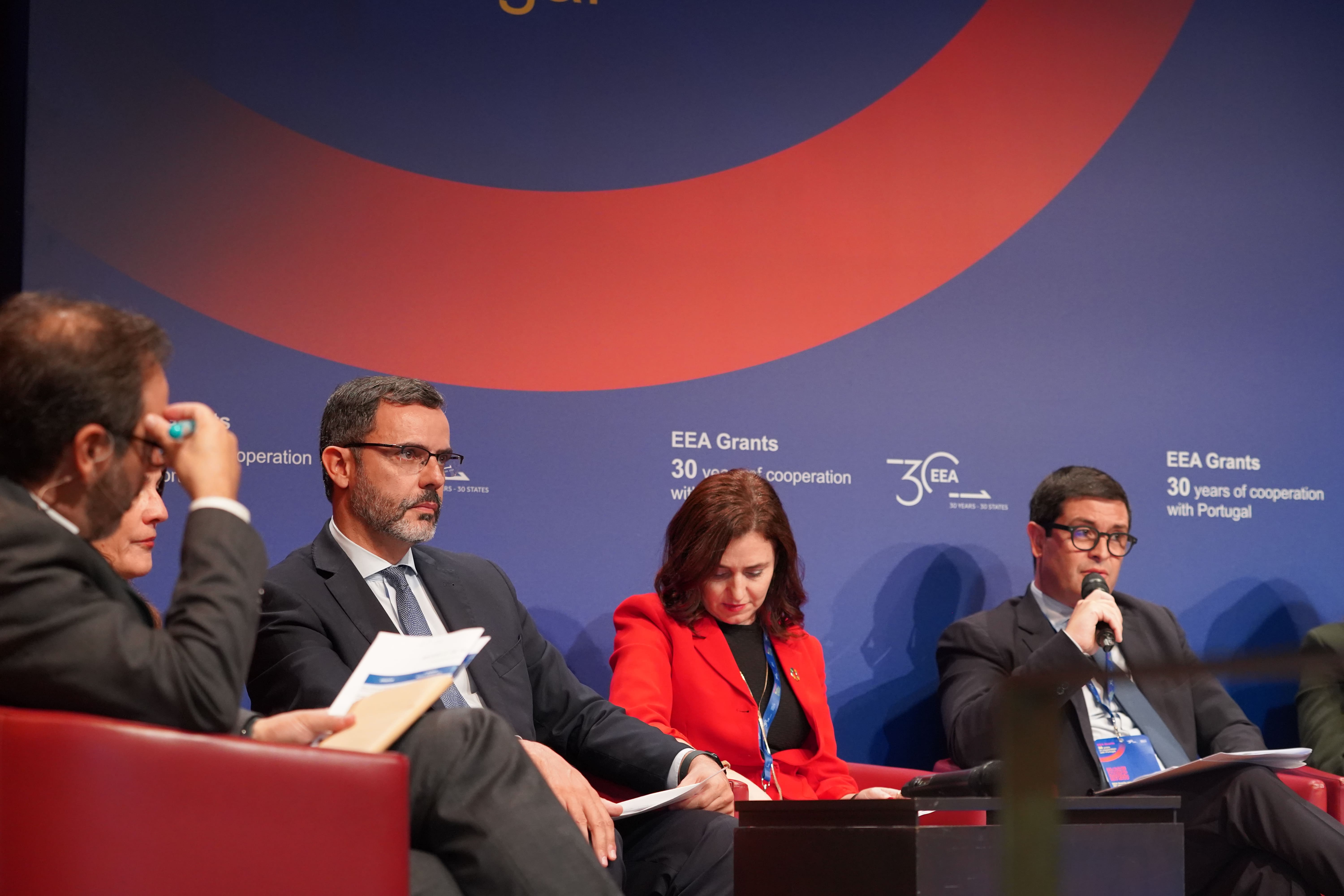
This Fund mobilised over 65,000 people and more than 250 NGOs to address critical issues like poverty, social exclusion, and polarisation. “One of the main outcomes from the last funding cycle is capturing the impact we had in changing laws and policies. Because when you mobilise citizen and NGOs, and when you bring these two forces together, you can really have an impact and advocate. There are some strong robust examples of laws and policies that have been changed due to the will and capacity to intervene.”, highlighted Pedro Calado, Director of the Civil Society Fund in Portugal.
We are very pleased with the outcome of the Civil Society Fund, and we would like to thank Iceland, Liechtenstein, and Norway for making it possible. António M. Feijó, President of the Calouste Gulbenkian Foundation
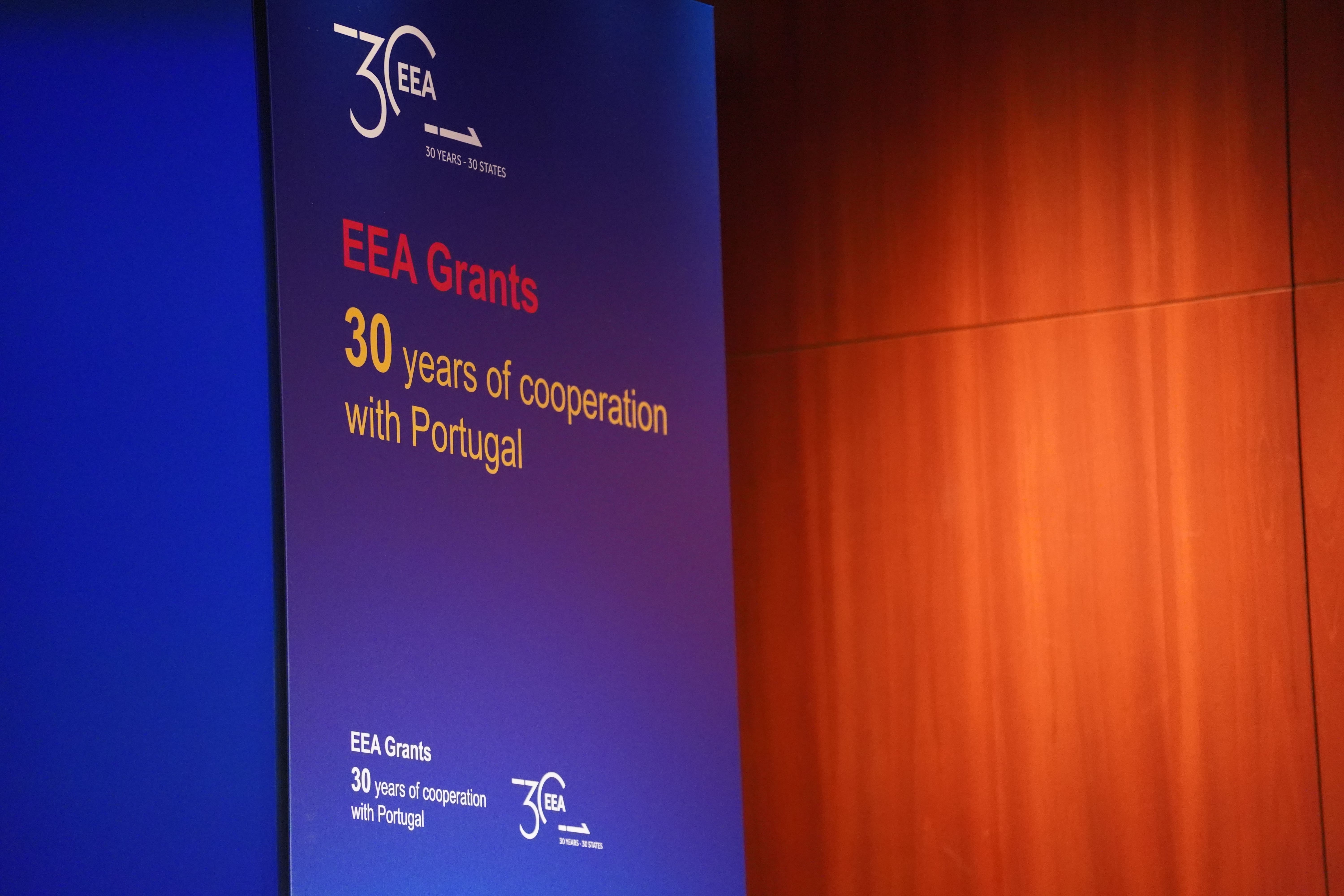
Bilateral cooperation as a driving force behind the success
Bilateral cooperation has been a driving force behind the success of the EEA Grants in Portugal. The partnerships between Portugal and the donor countries—Norway, Iceland, and Liechtenstein—have extended beyond financial support, fostering deep collaboration across public entities, civil society organisations, and private enterprises.
These partnerships have enabled partners across countries to work together on addressing shared challenges. From ocean science and environmental sustainability to gender equality and social inclusion, the collaboration has produced results that benefit all parties involved.
The EEA Grants have really served as an accelerator for our bilateral relation, and it is an essential link in the bilateral cooperation Iceland has with Portugal. Una Jóhannsdóttir, Deputy Chief of Mission from the Embassy of Iceland in Paris.
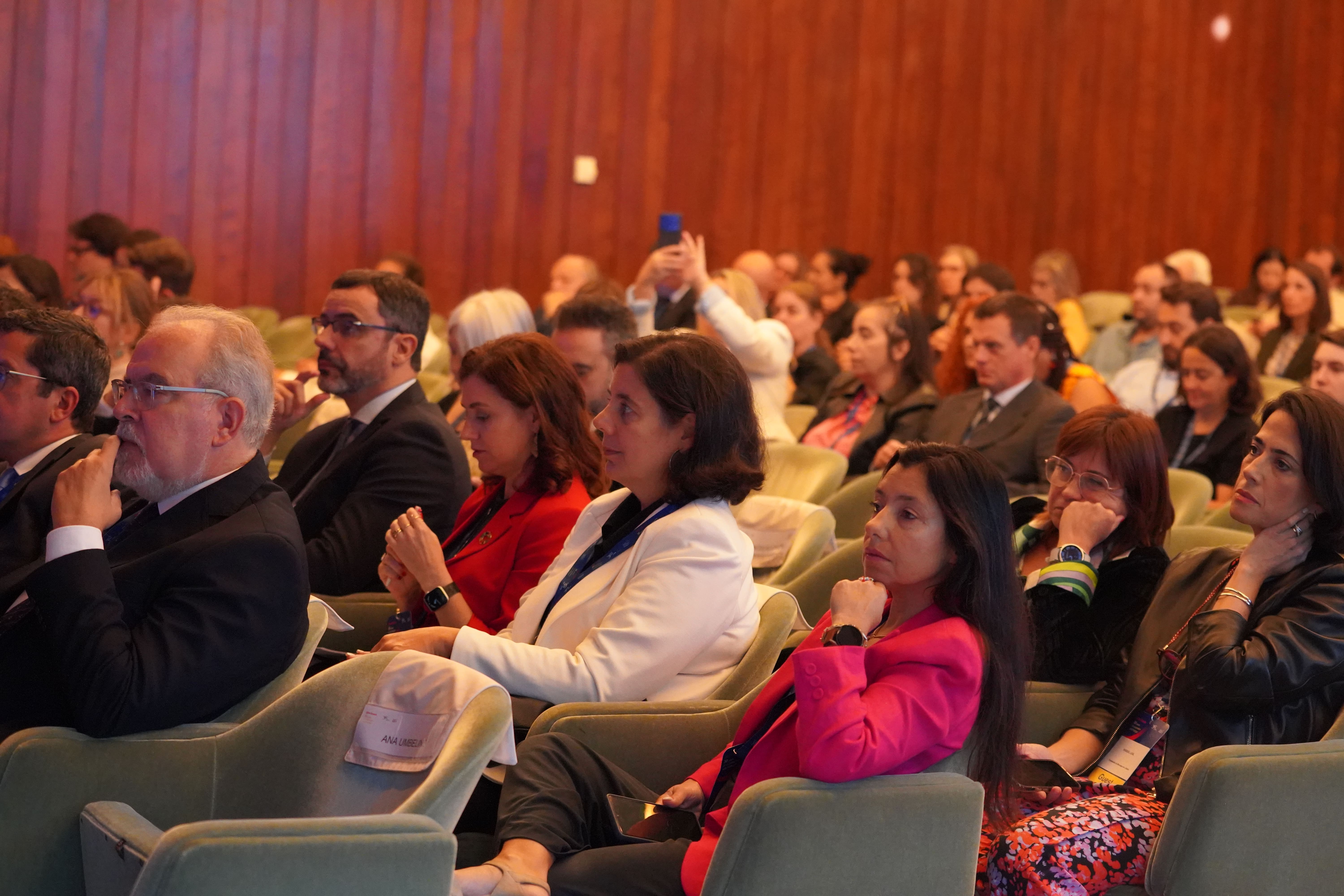
Key aspirations looking ahead at the future
The celebration of 30 years of cooperation was an occasion to celebrate past achievements but also reaffirmed the commitment to the future. Portugal has made significant progress over the past 30 years, but the work is far from finished. Continued support and collaboration will be essential for ensuring that Portugal continues to make progress towards a more sustainable and equitable future. The EEA Grants will remain a key factor in shaping Portugal’s resilience, competitiveness, and overall success in the years to come.
“Europe is facing serious challenges, and the EEA and Norway Grants are part of the solution. I am hopeful for the future because we have strong partnerships that make us capable of facing these challenges together.", highlighted Katrine Steinfeld, Head of the Country and Bilateral Unit at the EEA and Norway Grants.
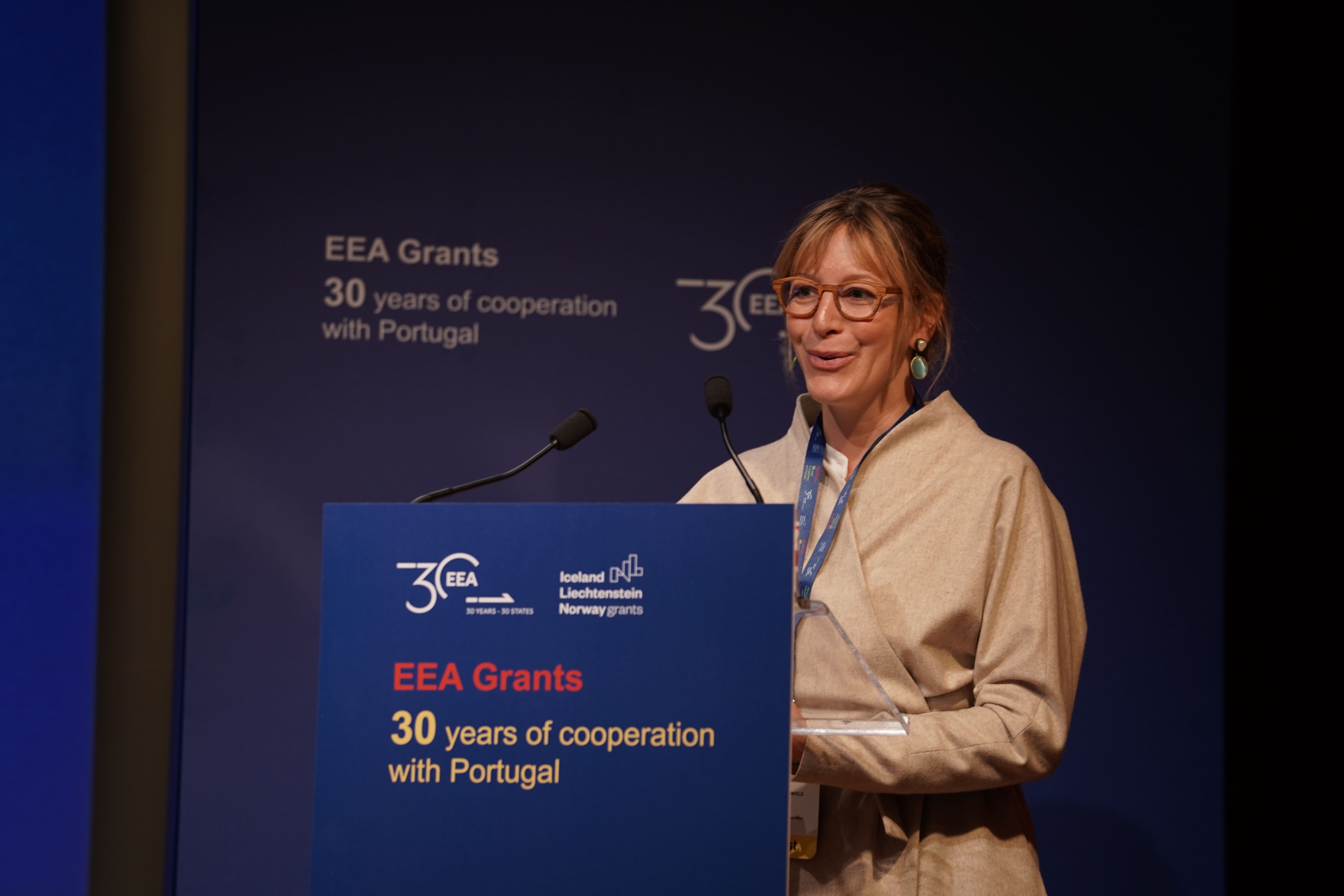
Looking ahead, the 2021-2027 funding period will continue to build on the strong foundation of bilateral cooperation, with a focus on priorities such as the European green transition, digital transformation, and strengthening democratic governance. "Europe is our home, our ‘value club’. Norway’s support through the EEA Grants is one of our key investments in Europe’s future. It is a tangible expression of our belief in cohesion, social justice, and civil society." added Maria Varteressian, Norwegian State Secretary for Foreign Affairs.
